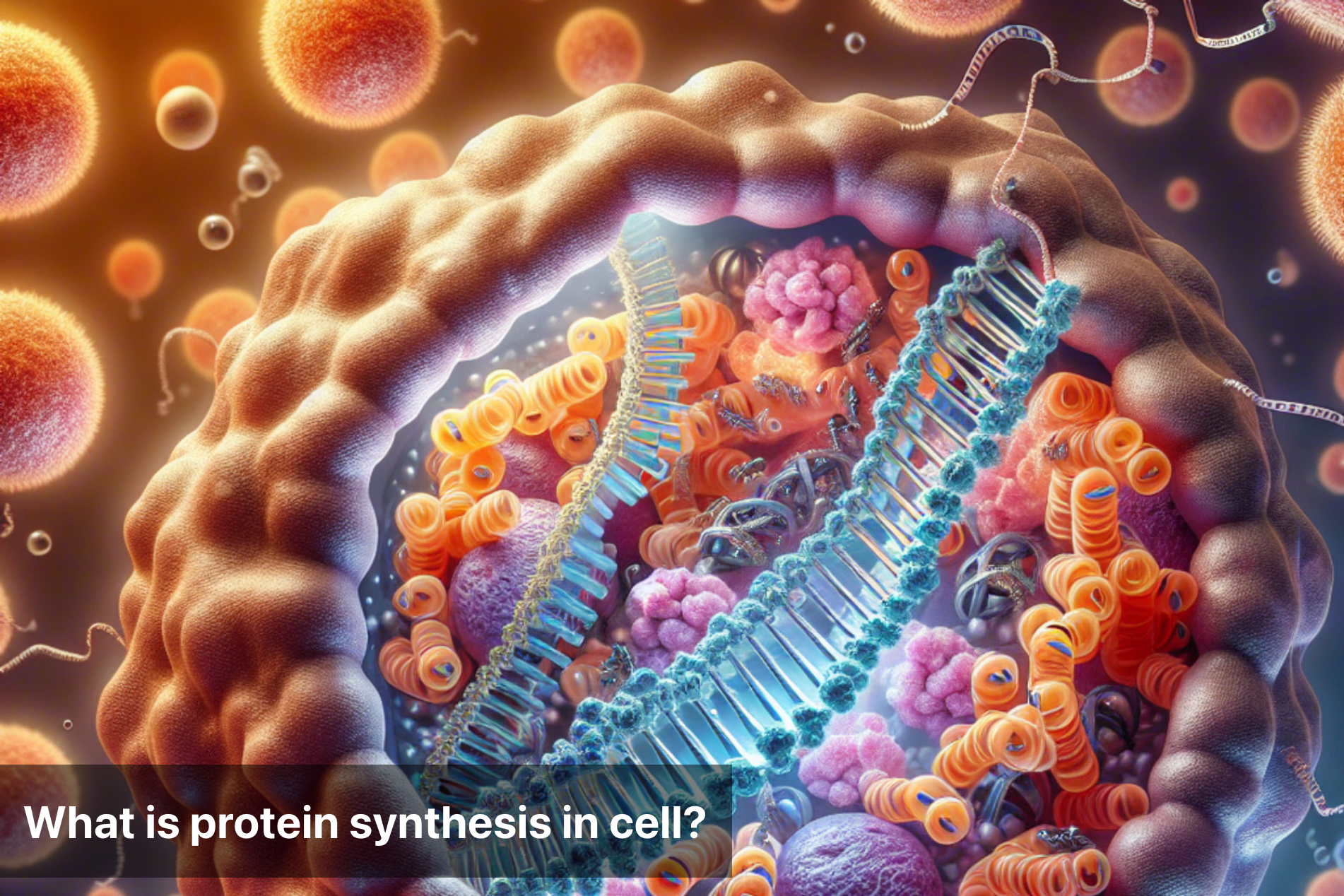
What is protein synthesis in cell?
Proteins play a crucial role in the functioning of a cell, and the process responsible for their creation is known as protein synthesis. It is a fundamental mechanism that takes place within the cells of all living organisms, dictating their structure, function, and regulation. At its core, protein synthesis involves the creation of proteins from amino acids based on the instructions encoded in the DNA.
This process begins with the transcription of DNA into mRNA, a molecule that carries the genetic information from the nucleus to the ribosomes in the cytoplasm. Next, during translation, the mRNA is decoded to produce a specific sequence of amino acids, forming a protein. The importance of this process cannot be overstated, as proteins serve as the building blocks of cells, tissues, and organs, contributing to the configuration and functionality of living organisms.
Understanding the intricacies of protein synthesis is essential for grasping the mechanisms underlying cellular activities and biological processes. Whether it's the synthesis of enzymes for metabolic reactions or structural proteins for maintaining cell shape, protein synthesis in a cell is a tightly regulated and dynamic process that sustains life. Stay tuned to delve deeper into the stages and nuances of protein synthesis to appreciate its significance and complexity in the realm of cellular biology.

Stages of Protein Synthesis
-
Transcription:
RNA polymerase binds to a DNA template and synthesizes a complementary mRNA strand.
mRNA carries the genetic information from the nucleus to the cytoplasm.
-
RNA Processing:
In eukaryotic cells, pre-mRNA undergoes processing, including capping, splicing, and polyadenylation, to form mature mRNA.
-
Initiation:
mRNA binds to a ribosome, and the ribosome scans the mRNA until it reaches the start codon (usually AUG).
-
Elongation:
tRNA molecules carrying amino acids bind to the ribosome based on the codons on the mRNA.
The ribosome catalyzes the formation of peptide bonds between adjacent amino acids, creating a polypeptide chain.
-
Translocation:
The ribosome moves along the mRNA, shifting to the next codon.
The empty tRNA is released from the ribosome, and the next tRNA carrying the appropriate amino acid binds.
-
Termination:
When the ribosome reaches a stop codon (UAA, UAG, or UGA) on the mRNA, protein synthesis stops.
Release factors bind to the stop codon, causing the ribosome to release the completed polypeptide chain.
-
Post-Translational Modifications:
The newly synthesized polypeptide undergoes various modifications, such as folding, cleavage, and addition of functional groups, to form a functional protein.
Protein Synthesis in Animal Cells
Transcription: DNA is transcribed into mRNA in the nucleus.
RNA Processing: Pre-mRNA is modified into mature mRNA.
Translation Initiation: mRNA attaches to a ribosome.
Elongation: Amino acids are added to the growing polypeptide chain.
Translocation: Ribosome moves along mRNA, reading codons.
Termination: Protein synthesis stops at a stop codon.
Post-Translational Modifications: Protein undergoes further modifications for functionality.
Regulation of Protein Synthesis
Transcriptional Control: Transcription factors regulate gene expression by binding to DNA sequences.
Post-Transcriptional Control: RNA stability and alternative splicing affect mRNA levels.
Translational Control: Initiation factors and regulatory proteins modulate the translation process.
Post-Translational Control: Protein activity is regulated by modifications like phosphorylation and ubiquitination.
Cellular Signaling: Intracellular pathways respond to signals, adjusting protein synthesis rates.
Nutrient and Metabolic Regulation: Nutrient availability and metabolic state influence protein synthesis via pathways like mTOR and AMPK.

Exploring Protein Synthesis in Cells: A Fundamental Process
Protein synthesis plays a crucial role in the proper functioning of cells. It is a fundamental process that enables the creation of proteins essential for various cellular activities. Understanding the significance of protein synthesis in cell function is key to unraveling the complexities of biological systems.
In the context of genetic disorders, disruptions in protein synthesis can lead to severe implications. Malfunctions in the process can result in the production of abnormal proteins, which may contribute to genetic diseases. By studying the mechanisms of protein synthesis, researchers strive to gain insights into the molecular basis of genetic disorders and explore potential therapeutic interventions.
The intricate process of protein synthesis in cell function is a cornerstone of biological systems. Its implications for genetic disorders underscore the importance of ongoing research in advancing our understanding of this fundamental biological process.
FAQs
-
What is the purpose of protein synthesis in cells?
Protein synthesis is essential for creating proteins that perform various functions in the body, such as building and repairing tissues, enzymes, hormones, and facilitating cellular processes.
-
How does protein synthesis occur in cells?
Protein synthesis involves two main stages - transcription, where the DNA code is copied into mRNA, and translation, where mRNA is used as a template to assemble amino acids into a protein.
-
Where does protein synthesis take place in cells?
Protein synthesis primarily occurs in the ribosomes, which are located in the cytoplasm of cells. In eukaryotic cells, transcription occurs in the nucleus, and translation occurs in the cytoplasm.
-
What are the key components involved in protein synthesis?
The key components involved in protein synthesis include messenger RNA (mRNA), ribosomes, transfer RNA (tRNA), amino acids, and various enzymes that facilitate the process.
-
Why is protein synthesis important for cell function?
Protein synthesis is crucial for maintaining cellular homeostasis, regulating gene expression, and responding to environmental stimuli. Without protein synthesis, cells would not be able to perform essential functions necessary for survival.
This Blog post is an initiative by Lo! Foods, to provide accurate and Nutritionist / Doctor approved information related to Health. Lo! Foods is India's leading brand for Everyday Functional Foods. Foods designed for specific Health conditions or Needs. Lo! Foods also runs India's largest range of Low Carb Healthy Cloud Kitchens, under the brand names of Lo!, ProteinChef, ATH (All Things Healthy) and DiabeSmart.







Leave a comment
Your email address will not be published.